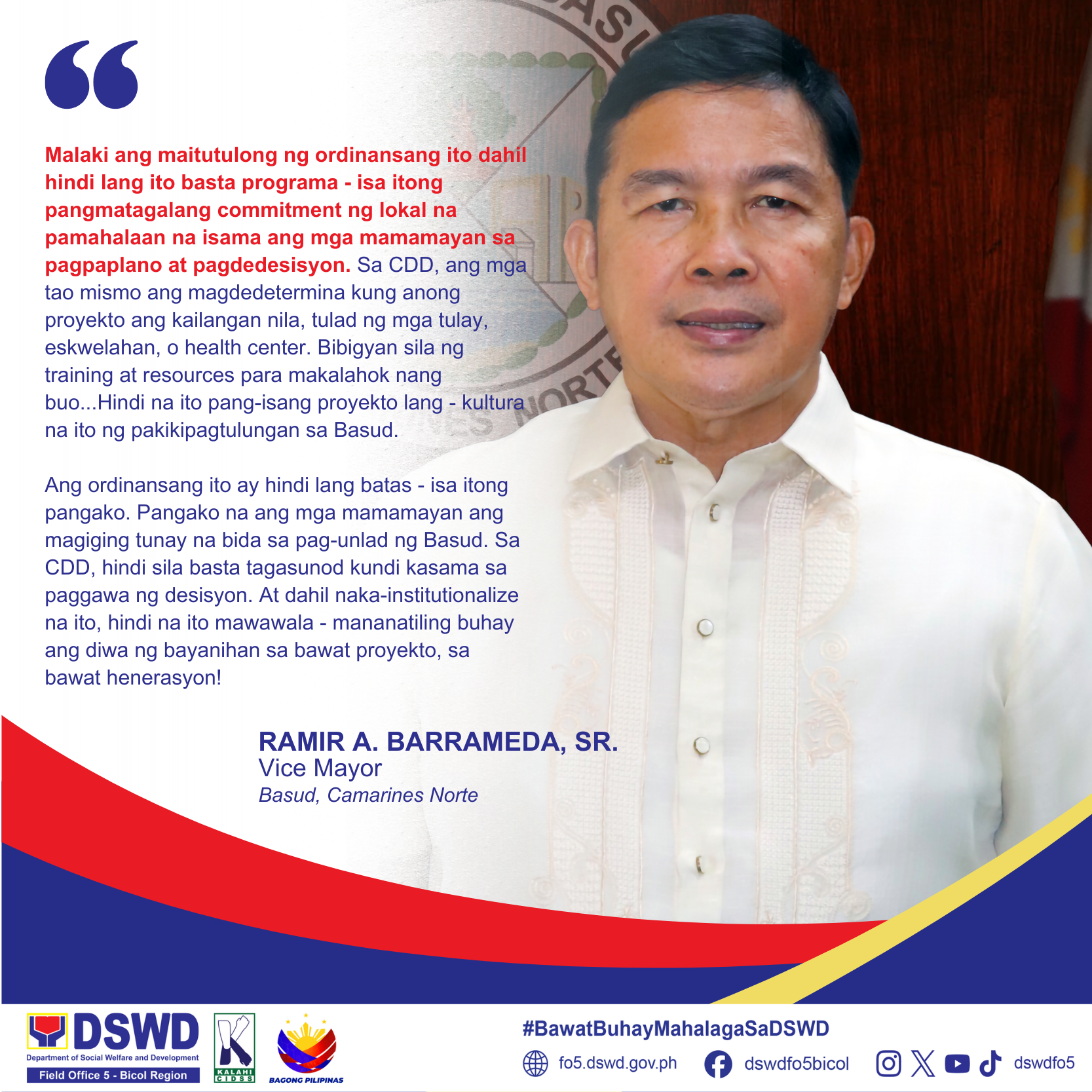
The Municipal Council of Basud in the province of Camarines Norte passed an ordinance institutionalizing the Community-Driven Development (CDD) principles and processes of the Department of Social Welfare and Development’s (DSWD) Kapit-Bisig Laban sa Kahirapan – Comprehensive and Integrated Delivery of Social Services (KALAHI-CIDSS).
The Municipal Ordinance No. 280-2025 was adopted during the 132nd regular session of the municipal council on March 7, 2025. CDD is a globally recognized strategy used by the program to empower communities to identify, plan, implement, and monitor subprojects based on their needs and priorities.
According to Vice Mayor Ramir A. Barrameda, Sr., the ordinance will be a great help because it is a long-term commitment by the local government unit to involve the citizens in planning and decision-making.
“Ang ordinansang ito ay hindi lang batas – isa itong pangako. Pangako na ang mga mamamayan ang magiging tunay na bida sa pag-unlad ng Basud. Sa CDD, hindi sila basta tagasunod kundi kasama sa paggawa ng desisyon. At dahil naka-institutionalize na ito, hindi na ito mawawala—mananatiling buhay ang diwa ng bayanihan sa bawat proyekto, sa bawat henerasyon,” he explained.
(This ordinance is not just a law—it is a promise. A promise that the people will be the true protagonists behind Basud’s development. Through CDD, they are not merely followers but active participants in decision-making. And now that it is institutionalized, it will not fade away—the spirit of bayanihan will live on in every project, across generations.)
Key elements of the ordinance adopted from the KALAHI-CIDSS were the conduct of consultation meetings or barangay assembly for participatory planning; capability building on Community-Based Monitoring and other training needed for the community project implementation; 20% to 35% women in paid labor; joint inspection and monitoring of Municipal and Barangay Local Government Units as well as stakeholders in projects; provision of training to Operations and Maintenance (O&M) groups; provision of assistance to O&M groups for the registration or accreditation; and regular conduct of sustainability evaluation and performance assessments of all implemented projects in the municipality.
Vice Mayor Barrameda highlighted that the municipality aims to be a model for participatory governance wherein all barangays have their own sustainable projects, from eco-tourism to livelihood programs.
“Higit sa lahat, nais naming maging bukas at accountable ang lokal na pamahalaan, kung saan boses ng ordinaryong mamamayan ang laging pinakikinggan,” he shared.
(Above all, we want the local government unit to be open and accountable, where the voice of the ordinary citizen is always heard.)
Regional Director Norman S. Laurio commended the municipality of Basud for its progressive move in passing an ordinance supporting the advocacy of the program.
“The foundation of our program is to put communities first, which is what institutionalizing CDD entails. In addition to the institutionalization of the processes and principles of the program, the legislation also ensures that the Bayanihan spirit is in every community,” Director Laurio said.
